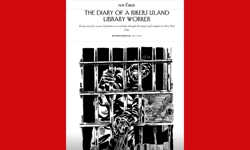More than 200 years ago, the makers of the US constitution added a first amendment guaranteeing freedom of expression and media freedom while the ink was still drying on the smart new document.
As President Obama reminded us this week, they based it on freedoms already fought for and won in Britain – but never written down.
That is the background to the drama of injunctions and super-injunctions played out in the courts and Parliament this week.
The media knew a secret but they promised not to tell because they obey court rulings. Clearly, tens of thousands of Twitter users wanted to know what thousands of football fans already knew and had been singing about at matches for weeks.
An MP, using the historic law of parliamentary privilege spoke the name that most people already knew and gave the media the opportunity to publish.
The affair has the hallmarks of an old fashioned Whitehall Theatre farce. It may have started with the dropping of trousers and other garments but the issues are far more serious.
The problem dates back to when a fresh new Labour government decided to introduce a Human Rights Act, making the European Convention on Human Rights part of our law.
In 1998, the then Lord Chancellor, Lord Irvine, told us the HR Act would at last guarantee press freedom in the UK.
We warned that the conflict between Article 8 of the convention, concerning individual privacy, and Article 10, freedom of expression, could leave the media worse off. Some would claim that as eight comes before ten, eight should have precedence.
Ministers said each article had equal importance and they introduced an extra clause telling judges they must give special consideration to freedom of expression.
They were crystal clear that freedom of expression, and media freedom that goes with it, was sacrosanct. There was no need for a privacy law or statutory control of the press; the Press Complaints Commission was doing a fine job on privacy, they added.
Since then, codes of practice and the PCC have been strengthened still further but a clutch of clever lawyers have engineered a growth in privacy injunctions some of which we were not even supposed to know existed, let alone whose identities or alleged misdeeds they were hiding.
As they were secret they crept up almost unannounced. No one really knows how many secrecy orders exist. They can be used by all sorts of people, and indeed companies, to hide behaviour that no one would dispute deserves exposure.
I am not really that bothered about the sordid details of soccer stars’ extra curricula and extra marital follies – I’m a rugby man myself – but plenty of people are concerned.
They pay a fortune to watch their heroes perform on the pitch. Their kids lap up every dot and comma of superstars’ utterances and demand the boots, clothes, drinks and food they endorse.
Parents subsidise their lavish lifestyles, including questionable extra marital relationships and in some cases paying for prostitutes.
They may not be paid by taxpayers but they are funded, one way or another, out of the public’s pockets and purses. Should they be entitled to benefit from our rapture if they hypocritically exploit a squeaky clean image when in reality it is not quite so polished?
Clearly a significant proportion of the population says ‘no’ and flouts the secrecy injunctions on social networks. Centuries old pub gossip has now gone global. The internet has given people a voice.
That genie cannot be put back into its lamp and why should it?
The ECHR was drawn up by British lawyers and judges after the Second World War to protect us all against tyranny and dictators. It was never intended to protect footballers, film stars, corrupt businessmen or politicians from the consequences of behaviour that embarrasses them.
Lord Wakeham, chairman of the PCC when the HR Act was passed, has suggested amending it to make it clear that it applies only to state and public bodies from which we need protection as the convention writers intended.
It is not a matter of being moralistic or begrudging people a good living. We can choose the newspapers and magazines we read. We must not choose which parts of the media should be free and which should be constrained simply because we may not approve of the stories they carry.
As the Duke of Wellington put it, we should be free to publish and be damned – paying damages if we get it wrong. There should be no prior restraint.
The Government and Parliament, who make our law, should remind the judges, who interpret the law, just what Parliament intended back in 1998.










